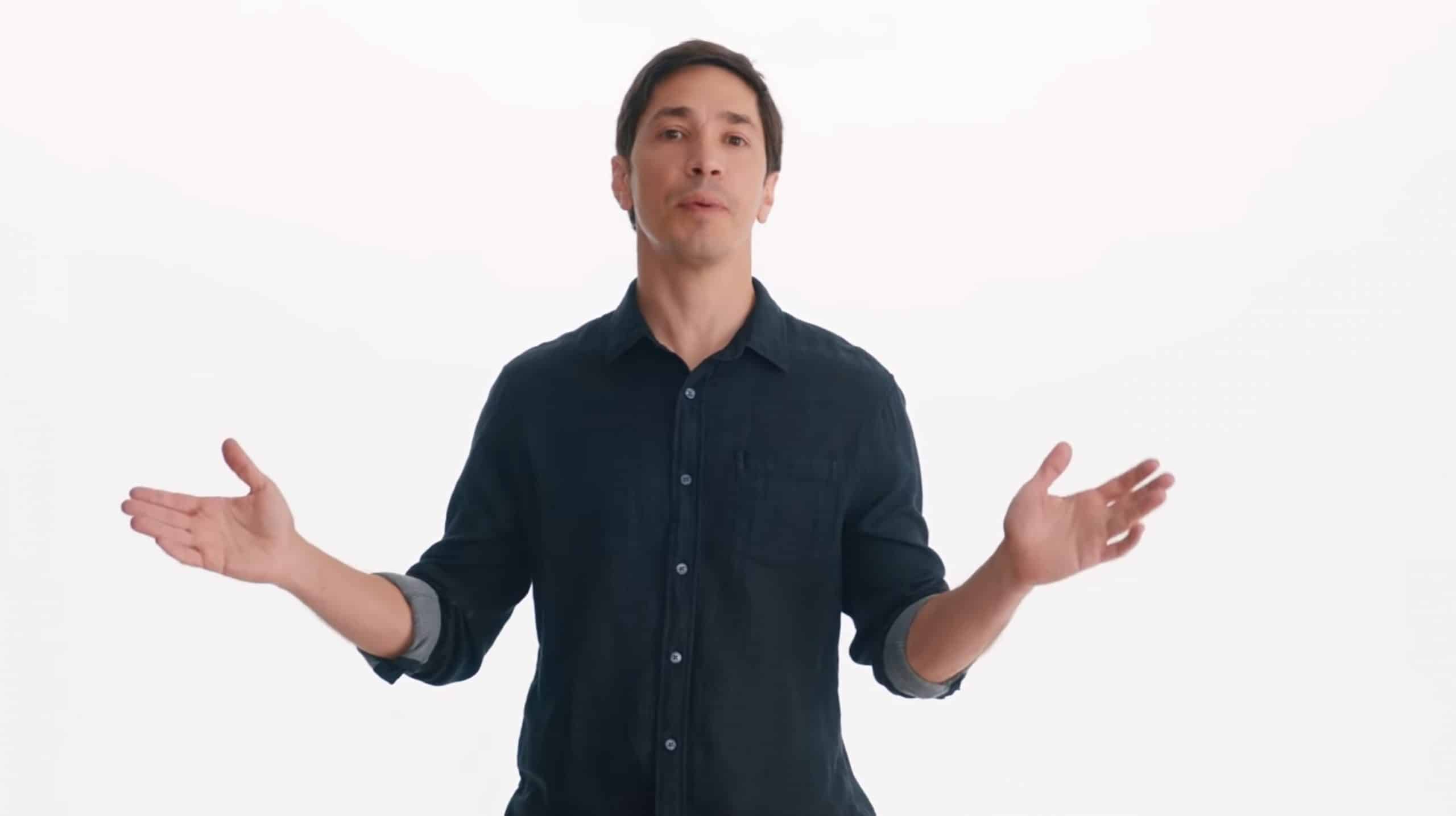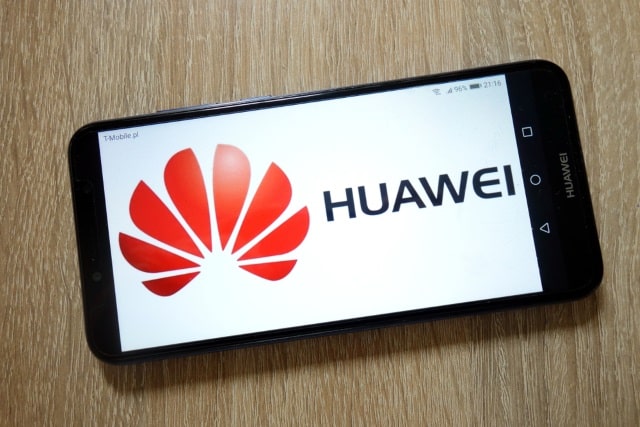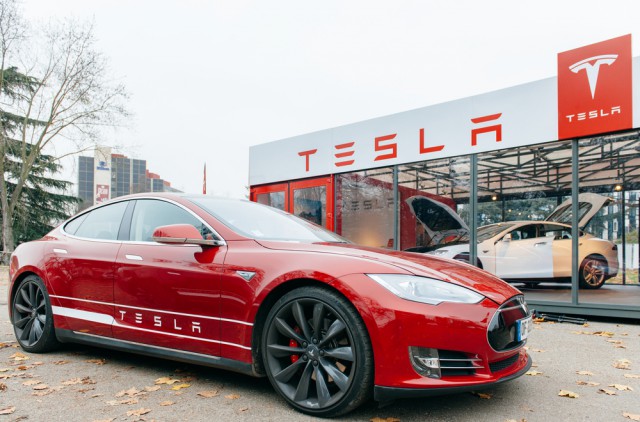
False flags and internet censorship: A cautionary tale
The Internet went down in Mauritius -- and you should be afraid.
Homes, businesses, and even mobile/wireless users were unable to access much of the online world on Monday thanks to what government IT managers are calling an "external cyberattack from multiple locations."

The 'I'm a Mac' guy is back and shilling for…Intel?
It’s true. B-list American actor Justin Long is currently being featured in a series of TV spots pitching Intel-based PCs over those from Apple. And just as he did back in the noughties, Long is playing his "oh, shucks, I guess I can’t do that" schtick to perfection, only this time he’s stymied by the Mac’s lack of functionality (like convertible hinges or a touchscreen).
The spots are mildly amusing. However, they ultimately miss the point about what makes Apple products desirable -- namely, the perception of luxury. Apple products long ago transitioned to become "aspirational" goods. A person toting a MacBook Pro or Air is now seen as a making more of a fashion statement than an actual technology choice. Whether or not these people use their devices to get any work done is almost irrelevant. They want to be seen with that sleek, silver Apple device tucked under their arm or poking out of their overpriced handbag.

Job search scammers and you
Some people have no shame. It wasn’t a year ago that I was approached by an Internet scammer posing as a job recruiter for a medium-sized New England IT firm. In that case, someone claiming to be a Ms. Kirsten Lambert contacted me through ZipRecruiter’s email service about a position with Belcan, LLC, and I spent several days "interviewing" for this bogus position until I finally called them out on their lies.
Now they’re back. Maybe not the same scammer, but one using a similar modus operandi (you’d think these idiots would maintain a database of blown "marks," but I digress). This time around it was a direct email from a "Stephanie Serra," ostensibly from the recruiting firm SourceLast. The message indicated that they had found my resume on Hired.com and that they wanted to know if it was up to date and if I’d be available for an interview this week.

What US wireless providers need to learn from telecom companies in paradise
Living in a developing nation, what used to be referred to as a third world country, has its charms. Many of the most beautiful places on Earth are found in such countries -- think Phuket in Thailand, or the myriad members of the Greater and Lesser Antilles. As a resident of one of the more remote and desirable of these destinations -- Mauritius -- I’ve been spoiled by access pristine beaches, lush jungles, and tropical fruits growing (literally) outside my window. But what I haven’t appreciated is the high cost of wireless internet access.
Until just recently, getting a pre-paid wireless plan for your iPhone or Android handset was far from economical. A typical monthly plan, though relatively inexpensive at MUR 299 (roughly $7.50 USD), came with a paltry 2-5GB of data. And as a Twitter and YouTube addict, I found myself refilling said plan almost weekly, depending on how much time I spent lazing on the beach or traipsing through the island’s majestic mountain forests.

I’m never going back to my old school: Musings on the fallout from COVID-19-related school closures
With all due respect to Donald Fagan -- front man for beloved jazz-rock duo Steely Dan -- I don’t think we have to wait until "California tumbles into the sea" before we all agree that the idea of a traditional university education is now anachronistic. With COVID-19 disrupting and, in some cases cancelling, in-person learning at leading institutions, many higher-ed students are realizing they can get the skills and knowledge they need without ever stepping foot on campus. In fact, some are discovering that life in "Virtual-U" is better -- easier, more productive, less stressful -- than the real thing.
Case in point: My daughter, who was attending an Ivy League women’s college until the Coronavirus sent her and her classmates packing in the middle of their Spring semester. Since then, her school has cancelled on-campus classes for the Fall, forcing their nearly 3,000 students online. And while time zone differences (Mauritius is 9 hours ahead of the U.S. East Coast) make for some odd virtual classroom hours, she is definitely enjoying the freedom from stress and worry that were part of her traditional, campus-based education experience: Finding food she can eat/tolerate in the cafeterias; fighting for shared bathroom space in her dorm; and dealing with catty, College-aged girls and all the drama that that entails.

My trip down the rabbit hole of 'Huawei Search'
Poor Huawei. The Chinese company that America loves to hate has been struggling to weather a storm of U.S. regulatory actions that have left it unable pre-load its mobile devices with most Google services. That means no Maps, no Calendar, no Gmail -- and of course, no Google Play Store.
Huawei has tried to cope by developing its own stack of equivalent services, including home grown Maps and Weather apps, with mixed results. However, the one area where the rumored People’s Liberation Army (PLA) front company hasn’t yet dabbled is search. Until now

'M-m-m-my Corona!' [Humor]
The Coronavirus is everywhere! It’s in the air! It’s in elevators! It’s even crawling its way up through your toilet!
There’s no question, this is a major public health crisis, one that requires drastic containment measures. Which is why I am hereby formally declaring war on all things Corona! Anything and everything even tangentially associated with the virus or its name (including its official designation, COVID-19) MUST BE DESTROYED!

Why Google is wrong in its fight against Oracle America
"What’s mine is yours and what’s yours is mine."
With all due respect to Pete Townsend and The Who, no, no it’s not. If you take something that’s mine without compensating me for it then it’s stealing, plain and simple. In fact, the concept of private property rights is so fundamental to the American experience that it’s literally baked into our founding documents. Yet, as details surrounding an upcoming Supreme Court case ("Google v Oracle America") attest, the folks at search giant Google appear to think they should operate by different rules than the rest of us.

Beware fake recruiters bearing gifts!
When corporate recruiter Kirsten Lambert came into work this week, the last thing she probably expected to see was a LinkedIn message from yours truly asking about the new position she had just offered me earlier in the day. That’s because she had made no such offer. It was a scam. Someone impersonating her had spent the better part of three hours "interviewing" me via Google Hangouts for a position that was never mine in the first place.
Fortunately, I’ve been around the industry long enough to know how the recruitment process is supposed to work. And in this case, I was suspicious from the outset. For starters, this "fake" Kirsten wasn’t the first person from the firm I’d interacted with. An equally fictitious "Helen Meek" had contacted me over the weekend to tell me that she’d seen my profile on ZipRecruiter and that she was "impressed by my qualifications" -- that I’d be a "great fit for her Software Engineer position at Belcan, LLC, in Windsor, CT" (one of my four homes is located in a nearby town, so…easy commute!).

The Swiss 5G debacle is giving me a headache
This is why we can’t have nice things! Just as Switzerland is on the cusp of becoming a leader in 5G adoption, out pop the crazies to rain on the tiny nation’s wireless parade.
The land of Chalets and Saint Bernards has been aggressively pursuing 5G adoption, with major carriers promising coverage for 90 percent of the population by the end of the year. This includes nearly every city and town, as well as remote locations, like ski slopes and mountaintop resorts. Just this past July, operators finished installing or converting over 300 antenna stations for 5G transmission -- no mean feat given the rugged terrain of the Swiss Alps.

Hey, American patriots: Why all the Tesla hate?
People suck. Every time I think of giving my fellow humans a bit of slack, some evolutionary throwback emerges to spoil my mood.
Take the anti-Tesla crowd, for example. As a fan of both the company and the man behind it (Elon Musk), I get a lot of Tesla-related reading suggestions in my Google Now feed. And most of the time, the stories are positive: A stock Tesla sedan blowing away a fancy muscle car at a racetrack; an almost certain traffic accident avoided by the quick-thinking of Tesla’s Autopilot feature.

Embracing our deepfake future
"Is it live? Or is it Memorex?" Those of us who’ve been around a while will recall those iconic TV commercials where the announcer challenged the audience to tell the difference between a recorded performance and a live one (or as "live" as a pre-recorded TV spot can be). The idea was that the recording medium -- in this case, Memorex brand audio cassette tapes -- reproduced the full fidelity of the original so faithfully that, in one case, a singer’s high note recorded on one of their tapes literally shattered a nearby wine glass.
I like to think of the above as the first, crude precursor to what today we call "deepfake" technology. But whereas faithfully reproducing audio content has been a net positive for humanity (you wouldn’t be enjoying your MP3s or Spotify streams without those pioneering first steps), deepfake -- or the ability to recreate and/or completely simulate (using AI) both the audio and video representations of a live person -- has been universally panned because of its potential for abuse. After all, in a world full of fake news, it’s not hard to imagine some bad actor deciding to put out bogus recordings (or recreations) of high-profile individuals for personal or political gain.

iPhone 11 Pro: The ugliest iPhone ever!
They say that good things come in threes. Three of a kind. Three’s Company (RIP, John Ritter). Three-eyed ravens. There’s even a literary Rule of Three that spans the breadth of human influence and communication. Basically, we humans are hardwired to like things that come as a "pair-plus-one."
However, there are also plenty of bad things that come in threes. Three-eyed monsters. Three-legged invaders from Mars. The "third wheel" friend on what was supposed to be a hot date. So, it comes as somewhat of a surprise that Apple decided to put THREE separate cameras on the back of the new iPhone 11 Pro. Because, from an aesthetic and first impressions standpoint, this is one "fugly" beast!

Reaping the whirlwind of our impatience culture
"I want it all! … And I want it now!" With all due respect to the late, great Freddy Mercury, I don’t give a damn what he wants. Nor do I have any patience for the current generation’s obsession with instant gratification. When the average millennial gets frustrated if a web page takes more than 16 seconds to load, you know that the end of the world is nigh.
So, what the hell happened? Why is an entire generation of humanoid bipeds walking around in a funk of hyper-distraction?

Twitter philanthropy: Noble endeavor or evil conspiracy?
Philanthropy is a funny thing. Do it the "right" way and you’re a saint. Do it the "wrong" way -- as defined by the trolls of Twitter nation -- and you’re an evil, corrupt opportunist capitalizing on the bad fortune of the downtrodden.
It’s a lesson that Bill Pulte, CEO of Pulte Capital & Blight Authority, is finding out the hard way. After championing urban renewal through his campaign of tearing down and clearing abandoned homes in economically depressed areas (i.e. "urban blight"), the grandson of the legendary founder of Pulte Homes is turning his attention to a more targeted form of giving: Specifically, he’s advocating for the direct transfer of cash to needy individuals and families from willing donors, with Twitter as the medium connecting the two sides.

